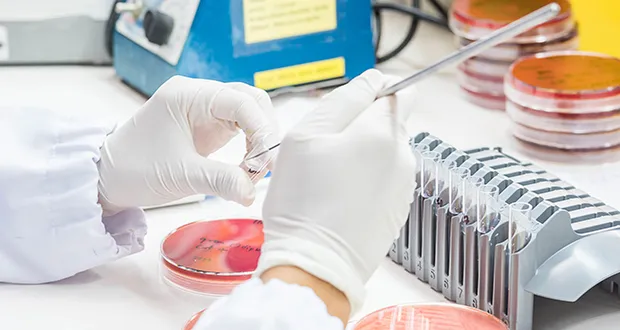Third One Health National Action Plan also includes education and awareness campaigns among its objectives for next five years
Infections acquired in intensive care units (ICUs) and through surgery will be monitored through a national system to be established as part of a new action plan on antimicrobial resistance.
The One Health National Action Plan on Antimicrobial Resistance 2026-2030 outlines six strategic objectives, covering human health, animal health and environmental sectors, to tackle the growing global threat of antimicrobial resistance (AMR).
Under one of those objectives – enhancing surveillance of antibiotic resistance and antibiotic use – a commitment is made to establish a national system for the ongoing monitoring of healthcare associated infections (HCAIs) in ICUs, as well as surgical site infections.
A system will also be set up to monitor common community acquired infections including urinary tract infection (UTI), in collaboration with GPs.
The action plan (iNAP3) is the third published Government strategy to address the threat of AMR and was launched yesterday by Minister for Health Jennifer Carroll MacNeill and Minister for Agriculture, Food and the Marine Martin Heydon.
“The World Health Organization has declared that antimicrobial resistance is one of the top 10 global public health threats facing humanity,” said Minister Carroll MacNeill.
“This threat requires a multisectoral approach across human, animal, and environment health to preserve the effectiveness of antimicrobials for future generations.”
She added: “With this National Action Plan, iNAP3, we have demonstrated that Ireland is fully committed to a collective approach to combating antimicrobial resistance. However, its success will depend on continued commitment from every sector and from each one of us.
“Since the publication of our first iNAP plan in 2017, significant progress has been made in tackling antimicrobial resistance in the health sector, and I would like to thank all healthcare workers for their efforts in this regard.”
According to a 2022 Lancet study it is estimated that bacterial AMR was directly responsible for 1.27 million global deaths in 2019 and contributed to 4.95 million deaths.
Latest figures show that the number of new organisms found to show a resistance to antibiotics in Ireland has almost tripled in the space of just three years.
Under the objective of improving awareness and empowering behaviour change to reduce antimicrobial resistance, the national action plan also commits to organise a public information campaign to raise awareness of AMR. The new HSE Health App will also be used to help inform the public of the issue, while AMR-relevant simulation training will be developed for healthcare professionals.
Other objectives outlined in the plan include reducing the spread of infection and disease; optimising the use of antibiotics in human and animal health; promoting r research and sustainable investment in new medicines, diagnostic tools, vaccines and other interventions; and strengthening multisectoral governance, sustainability, and accountability for a co-ordinated AMR response across all sectors and at all levels.
A foreword to the plan – written by chief medical officer Prof Mary Horgan, chief nursing officer Rachel Kenna, and chief veterinary officer Dr June Fanning – said that the new plan has been influenced by recent healthcare emergencies.
“It reflects lessons learned during the COVID-19 pandemic, the growing importance of diagnostics and surveillance, and the central role of education and behaviour change in supporting prudent antimicrobial use,” the foreword said.
“Emerging technologies and innovative approaches will also play a vital role in addressing AMR and enhancing infection prevention and control through the lifetime of this plan.
“It also acknowledges the crucial contribution of health and veterinary professionals, farmers, scientists, and our communities in preserving the effectiveness of these life-saving medicines.”
The plan was announced ahead of European Antibiotic Awareness Day, which takes place on Tuesday. The Irish Pharmacy Union (IPU) is using the day to highlight the importance of using antibiotics responsibly.
“Incorrect or unnecessary use of antibiotics can cause bacteria to become resistant to future treatments,” said IPU head of professional services Susan O’Dwyer.
“This is a health hazard not just for the person taking the antibiotics inappropriately but also for others who may later be infected by those resistant bacteria. In Ireland resistant infections such as MRSA are now commonplace.”
link

